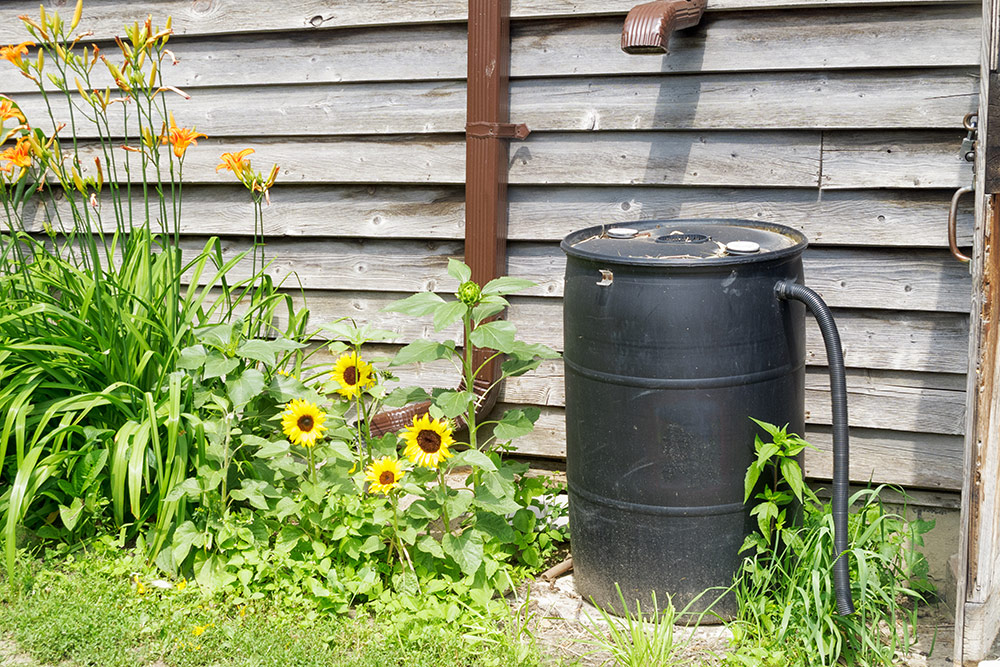Collecting rainwater may seem as if it’s for the birds — which it is, actually! — but it’s also a great way to go green. Whether you’re a homeowner or a renter, harvesting rain in a barrel has some real advantages for both your wallet and your community.
While HGTV offers an excellent DIY tutorial for setting up your first rain barrel, you can also buy barrels ready-made or enlist the help of a professional such as Rain Barrel Man John Elliotte.
Elliotte, a pioneer in the field of low-gravity rain barrel systems, started his Portland, OR-based business nearly 18 years ago with custom-built, attractive wood barrels. He now carries systems that range from more cost-effective recycled plastic barrels to reclaimed wood versions and specializes in hard-to-find zero-pressure rain barrel components that make using collected rainwater more efficient than ever.
But do you really need a rain barrel in the first place? Here are four reasons that the answer is yes.
1. Better gardens
Rainwater is better for the plants and soil in your garden. This is because rainwater is free of the chemicals, salts, inorganic ions, and fluoride compounds often found in tap water — plus it’s highly oxygenated.
If you have a vegetable garden — large or small — consider using rainwater to grow a long-lasting crop of healthy, nutrient-dense vegetables.
2. Money savings
Growing your own veggies and conserving resources can save you some serious coin too. According to the U.S. Environmental Protection Agency, a rain barrel will save most Mid-Atlantic homeowners about 1,300 gallons of water during the peak summer months.
Sommer Slevin, a renter in Portland, OR, agrees. She chose her rain barrel to save money: “We were strapped for cash; cutting our insane water bill was first on the list. Growing our own food, our barrel became essential, allowing us to conserve as much as possible.”
The math is simple: The less tap water you use, the less you pay for. The same goes for growing those vegetables.
3. Reduce your eco-footprint
Harvesting rainwater can help make a big impact on the environment and your community by reducing runoff and conserving resources.
What’s runoff? It’s what happens when rain or snow falls to the ground. While part is absorbed into the soil as groundwater, the rest runs downhill carrying debris, chemicals (such as fertilizer and pesticides), and bacteria with it, contaminating new areas.
If you collect that water before it travels downhill, you help reduce the negative environmental impact of runoff and soil erosion in your community. Better yet? It’s also ecofriendly if you use it to wash your car or pets.
4. Be prepared
In an extreme emergency or natural disaster, boiled rainwater (from a regularly sanitized rain barrel) can be used as drinking water. And if you live in a dry climate or your area has implemented water restrictions, your rainwater can help your garden survive harsh drought conditions, nourishing your plants with the reserves you’ve collected in your barrel.
Now that you know all that harvesting rain in a barrel can do, what’s stopping you?
Note: In some states, it’s illegal to collect rainwater. Check your local and state laws before you get started. If it is against the law, petition your local lawmakers or state senator to pass legislation to protect this environmentally friendly practice.


